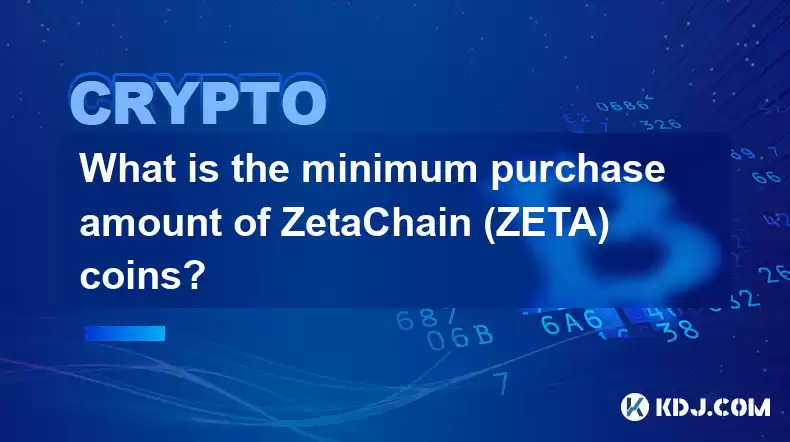-
 Bitcoin
Bitcoin $120300
1.41% -
 Ethereum
Ethereum $4296
2.75% -
 XRP
XRP $3.220
1.46% -
 Tether USDt
Tether USDt $0.9997
-0.04% -
 BNB
BNB $801.6
0.14% -
 Solana
Solana $179.9
0.22% -
 USDC
USDC $0.9998
-0.01% -
 Dogecoin
Dogecoin $0.2302
-0.24% -
 TRON
TRON $0.3405
-0.39% -
 Cardano
Cardano $0.7965
0.53% -
 Hyperliquid
Hyperliquid $44.80
2.57% -
 Chainlink
Chainlink $21.95
2.94% -
 Stellar
Stellar $0.4438
1.68% -
 Sui
Sui $3.767
-1.42% -
 Bitcoin Cash
Bitcoin Cash $584.4
3.24% -
 Hedera
Hedera $0.2554
-0.59% -
 Ethena USDe
Ethena USDe $1.001
-0.02% -
 Avalanche
Avalanche $23.57
0.00% -
 Litecoin
Litecoin $126.6
4.64% -
 Toncoin
Toncoin $3.339
0.94% -
 UNUS SED LEO
UNUS SED LEO $9.001
-0.49% -
 Shiba Inu
Shiba Inu $0.00001320
-0.92% -
 Uniswap
Uniswap $10.84
3.36% -
 Polkadot
Polkadot $3.945
-1.39% -
 Cronos
Cronos $0.1663
4.77% -
 Ethena
Ethena $0.8136
8.48% -
 Dai
Dai $0.0000
0.00% -
 Bitget Token
Bitget Token $4.391
-0.51% -
 Monero
Monero $268.0
0.80% -
 Pepe
Pepe $0.00001169
-1.57%
What is the minimum purchase amount of ZetaChain (ZETA) coins?
To minimize transaction costs and leverage favorable exchange rates, investors seeking to acquire ZetaChain (ZETA) coins should research minimum purchase amounts, platform fees, and current market conditions.
Dec 25, 2024 at 09:07 am

Key Points:
- Understanding the Minimum Purchase Amount for ZetaChain (ZETA) Coins
- Fiat and Crypto On-Ramps to Acquire ZETA Coins
- Centralized and Decentralized Exchanges for ZETA Trading
- Considerations for Minimum Purchase Thresholds
- Evaluating Transaction Fees and Exchange Rates
Understanding the Minimum Purchase Amount for ZetaChain (ZETA) Coins
The minimum purchase amount for ZetaChain (ZETA) coins varies based on the platform or exchange used to acquire them. Different factors influence the minimum purchase requirements, including regulatory compliance, liquidity, and market conditions. Understanding the minimum purchase amounts is crucial for individuals seeking to invest in or utilize ZETA coins.
Fiat and Crypto On-Ramps to Acquire ZETA Coins
- Centralized Exchanges: Major centralized exchanges like Binance, Coinbase, and Gate.io offer on-ramps that allow users to purchase ZETA coins using fiat currencies such as USD, EUR, and GBP. These exchanges typically have varying minimum purchase amounts, ranging from a few dollars to hundreds of dollars.
- Peer-to-Peer Marketplaces: Over-the-counter (OTC) marketplaces like Binance P2P and Paxful facilitate direct transactions between buyers and sellers. Minimum purchase amounts on OTC marketplaces can be significantly lower than on centralized exchanges, but they may come with higher transaction fees.
- Decentralized Exchanges: Decentralized exchanges (DEXs) like Uniswap and SushiSwap allow users to trade ZETA coins directly from their crypto wallets. Minimum purchase amounts on DEXs are often set by the liquidity pools used for trading, which can result in variations.
Centralized and Decentralized Exchanges for ZETA Trading
- Centralized Exchanges: Binance: Minimum purchase amount varies based on fiat currency and payment method.
- Coinbase: Minimum purchase amount is $2 for credit/debit card purchases and $10 for bank transfers.
- Gate.io: Minimum purchase amount is 10 USDT.
- Decentralized Exchanges: Uniswap: Minimum purchase amount is determined by the liquidity pool used for trading. SushiSwap: Minimum purchase amount is also determined by the liquidity pool used for trading.
Considerations for Minimum Purchase Thresholds
- Liquidity: The minimum purchase amount can impact the liquidity of the asset on the platform. Higher minimums may reduce market depth and make it more difficult to execute trades.
- Regulatory Compliance: Exchanges and marketplaces may impose minimum purchase amounts to comply with regulatory requirements for anti-money laundering (AML) and know-your-customer (KYC) protocols.
- Transaction Fees: Minimum purchase amounts can affect transaction fees, especially for small trades. Higher minimums may incur lower fees per transaction, while lower minimums may result in higher relative fees.
Evaluating Transaction Fees and Exchange Rates
- Transaction Fees: When selecting a platform to acquire ZETA coins, consider the transaction fees associated with each option. Fees can vary based on the exchange, payment method, and trade size. Comparing fees can help minimize the impact of costs on investments.
- Exchange Rates: Fluctuating exchange rates can influence the minimum purchase amount. Monitor market conditions to determine the most favorable exchange rates before purchasing ZETA coins. Checking multiple sources for live exchange rates can provide an optimal understanding of current market conditions.
**FAQs Related to the Keywords in the
Disclaimer:info@kdj.com
The information provided is not trading advice. kdj.com does not assume any responsibility for any investments made based on the information provided in this article. Cryptocurrencies are highly volatile and it is highly recommended that you invest with caution after thorough research!
If you believe that the content used on this website infringes your copyright, please contact us immediately (info@kdj.com) and we will delete it promptly.
- DYDX Price Stays Afloat: Navigating Neutral Momentum with Technical Indicators
- 2025-08-11 20:50:12
- Superman Takes Flight: A Deep Dive into the Comic Program and Coin Medals
- 2025-08-11 20:30:12
- JasmyCoin's Bullish Momentum: Riding the Daily Gain Wave
- 2025-08-11 21:10:12
- Shiba Inu's Comeback Trail and the Meme Coin Mania: Can $SHIB Deliver a 12,000x Return?
- 2025-08-11 18:30:11
- Proof of Trust, Transparency, and User Safety: Keeping Crypto Real
- 2025-08-11 18:50:12
- Pudgy Penguins, Bitcoin Penguins, and the $22M Meme Coin Mania: A New York Perspective
- 2025-08-11 17:10:11
Related knowledge

How to purchase Aragon (ANT)?
Aug 09,2025 at 11:56pm
Understanding Aragon (ANT) and Its PurposeAragon (ANT) is a decentralized governance token that powers the Aragon Network, a platform built on the Eth...

Where to trade Band Protocol (BAND)?
Aug 10,2025 at 11:36pm
Understanding the Role of Private Keys in Cryptocurrency WalletsIn the world of cryptocurrency, a private key is one of the most critical components o...

What is the most secure way to buy Ocean Protocol (OCEAN)?
Aug 10,2025 at 01:01pm
Understanding Ocean Protocol (OCEAN) and Its EcosystemOcean Protocol (OCEAN) is a decentralized data exchange platform built on blockchain technology,...

Where can I buy UMA (UMA)?
Aug 07,2025 at 06:42pm
Understanding UMA and Its Role in Decentralized FinanceUMA (Universal Market Access) is an Ethereum-based decentralized finance (DeFi) protocol design...

How to buy Storj (STORJ) tokens?
Aug 09,2025 at 07:28am
Understanding Storj (STORJ) and Its Role in Decentralized StorageStorj is a decentralized cloud storage platform that leverages blockchain technology ...

Where to find the best price for Audius (AUDIO)?
Aug 11,2025 at 04:01pm
Understanding the Basics of Ethereum StakingEthereum staking refers to the process of locking up ETH tokens to support the security and operations of ...

How to purchase Aragon (ANT)?
Aug 09,2025 at 11:56pm
Understanding Aragon (ANT) and Its PurposeAragon (ANT) is a decentralized governance token that powers the Aragon Network, a platform built on the Eth...

Where to trade Band Protocol (BAND)?
Aug 10,2025 at 11:36pm
Understanding the Role of Private Keys in Cryptocurrency WalletsIn the world of cryptocurrency, a private key is one of the most critical components o...

What is the most secure way to buy Ocean Protocol (OCEAN)?
Aug 10,2025 at 01:01pm
Understanding Ocean Protocol (OCEAN) and Its EcosystemOcean Protocol (OCEAN) is a decentralized data exchange platform built on blockchain technology,...

Where can I buy UMA (UMA)?
Aug 07,2025 at 06:42pm
Understanding UMA and Its Role in Decentralized FinanceUMA (Universal Market Access) is an Ethereum-based decentralized finance (DeFi) protocol design...

How to buy Storj (STORJ) tokens?
Aug 09,2025 at 07:28am
Understanding Storj (STORJ) and Its Role in Decentralized StorageStorj is a decentralized cloud storage platform that leverages blockchain technology ...

Where to find the best price for Audius (AUDIO)?
Aug 11,2025 at 04:01pm
Understanding the Basics of Ethereum StakingEthereum staking refers to the process of locking up ETH tokens to support the security and operations of ...
See all articles

























































































